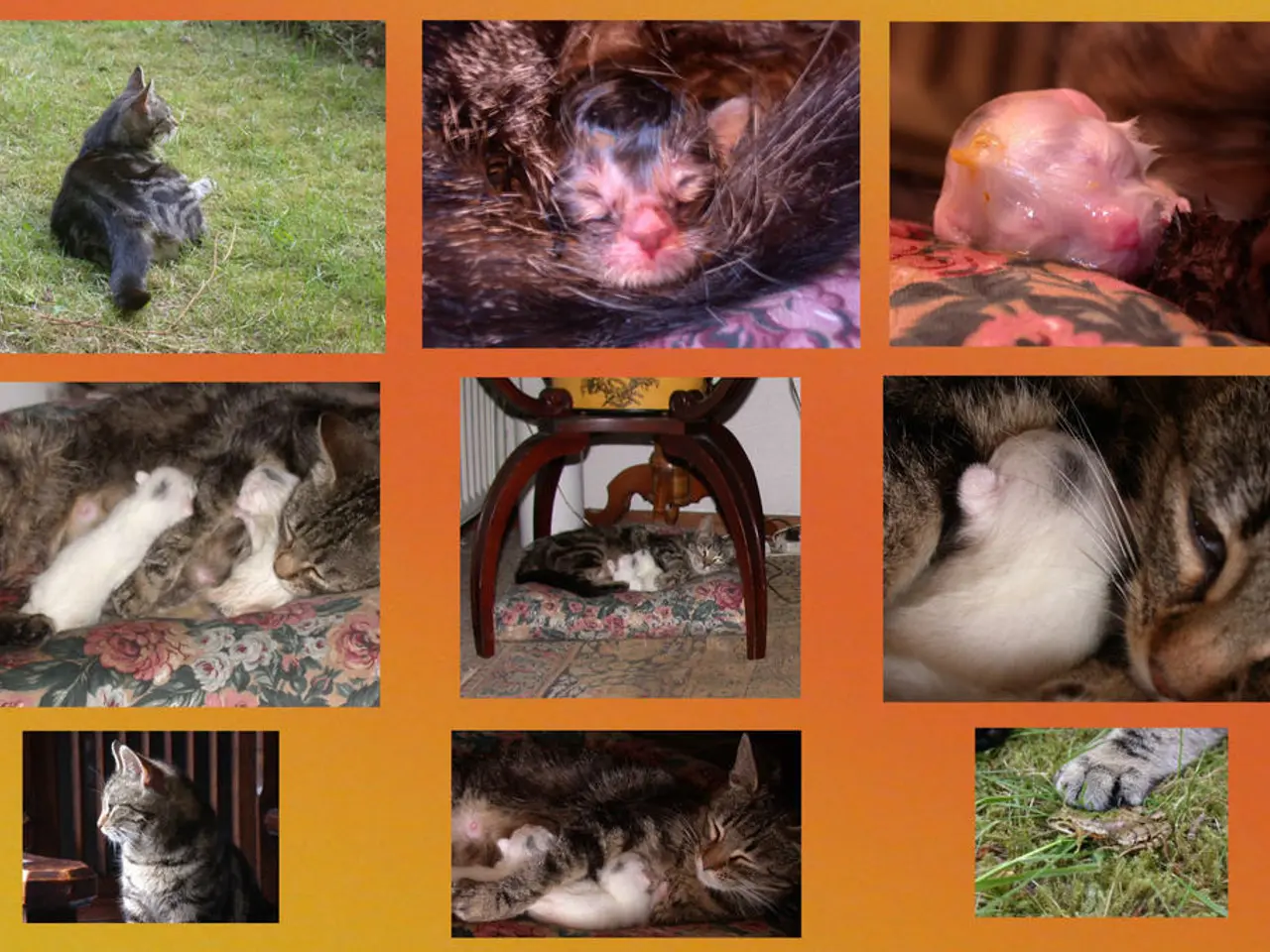Groundbreaking Advances in Bioinformatics: Paving the Way for Healthier Livestock through Digital Methods
In the heart of modern agriculture, a groundbreaking collaboration between computer scientists and animal researchers, led by Dr. Michael Looper and Dr. Goswami, is redefining the landscape. This fusion of biology and bytes is reshaping our understanding of animal health, aiming to build a healthier, more sustainable world for animals, farmers, and humans.
At the Centre for Agricultural Data Analytics, students are being introduced to the exciting field of artificial intelligence, a subject many have not had the opportunity to study before. The centre aims to teach machine learning, statistical modeling, and genomic analysis to the next generation of scientists, preparing them for the challenges and opportunities of the future.
One of the key areas where bioinformatics is making a significant impact is in the study of gene expression and protein interactions in different microbial communities. By mapping which biological pathways are active or dormant, scientists can potentially lead to precision nutrition and sustainable farming practices. Dr. Goswami, along with Dr. Jiangchao Zhao, is delving into microbiomes that regulate digestion and resistance to infection, crucial for the health and productivity of livestock.
Advancements in bioinformatics are transforming animal science through comprehensive genome annotation projects, sophisticated microbiome analyses aided by AI, and predictive models for animal health. Decoding animal genomes, thanks to large international collaborations like the Functional Annotation of Animal Genomes (FAANG) project, is revealing intricate details about the genetic makeup of farmed animals such as cattle, pigs, chickens, and fish. These efforts aim to standardize data analysis pipelines and implement FAIR (Findable, Accessible, Interoperable, Reusable) scientific principles, improving reproducibility and collaborative research.
Studying microbiomes is another area where AI and machine learning are making a significant impact. They enable a deeper understanding of host-microbiome metabolic convergence and disease states, crucial for improving livestock health and productivity. Recent developments in large language models (LLMs) and deep learning applied to bioinformatics are facilitating better genomic sequence analysis, protein function prediction, and multi-omics data integration. These AI-driven tools are improving disease biomarker discovery, protein structure prediction, and biological data interpretation, accelerating the identification of health risk factors and disease markers in animals, enabling proactive health management and precision breeding strategies.
Moreover, these bioinformatics technologies are contributing to biodiversity conservation and livestock management improvements, driving progress in both sustainable agriculture and animal welfare. By identifying bacterial imbalances in livestock before symptoms appear and designing probiotics tailored to specific microbiomes, scientists can potentially prevent diseases and improve animal health. The integration of AI and big data into agricultural science is also hoped to not only diagnose disease faster but predict and prevent outbreaks entirely.
Dr. Goswami's work is not limited to poultry and cattle; he is working to apply these techniques to various livestock species. Under his leadership, the Centre for Agricultural Data Analytics is helping to build a world-class facility that will continue to drive innovation in this exciting field. Together, these advancements in bioinformatics are paving the way for a more sustainable, healthier, and productive future in animal science.
- In the fusion of biology and technology, Dr. Goswami's research focuses on the study of microbiomes that regulate digestion and resistance to infection in various livestock species.
- The Centre for Agricultural Data Analytics, led by Dr. Michael Looper, is educating students about artificial intelligence, introducing them to machine learning, statistical modeling, and genomic analysis.
- The study of gene expression and protein interactions in different microbial communities is significantly impacted by bioinformatics, potentially leading to precision nutrition and sustainable farming practices.
- The advances in bioinformatics, aided by AI, are transforming animal science through comprehensive genome annotation projects and sophisticated microbiome analyses.
- Large international collaborations like the Functional Annotation of Animal Genomes (FAANG) project are decoding animal genomes to reveal intricate details about their genetic makeup.
- AI and machine learning are enabling a deeper understanding of host-microbiome metabolic convergence and disease states, crucial for improving livestock health and productivity.
- Bioinformatics technologies are contributing to biodiversity conservation and livestock management improvements, driving progress in both sustainable agriculture and animal welfare.
- The integration of AI and big data into agricultural science is hoped to not only diagnose disease faster but also predict and prevent outbreaks entirely, shaping the future of health-and-wellness, fitness-and-exercise, and lifestyle.








